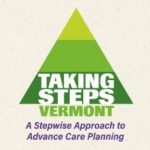By Cheryl Shaw, Grace Cottage Hospital Health Coach
Who doesn’t love a smoothie? They’re easy to make, so they can give a new, healthy meaning to the words “fast food” – if you choose good ingredients.
You probably already know how to make a smoothie: just chop up the larger ingredients, throw everything into a blender, and turn it on. Super easy.
Here is a list of my top favorite smoothie ingredients to inspire you. Organic options are always best, but do what you can. Mix them up and have fun creating!
Start with a Base: Here are some healthy ideas: Nut or seed milk (almond, hemp, cashew), unsweetened coconut water, unsweetened plain yogurt or kefir (if you tolerate dairy; good for probiotics/cultures!), a little coconut milk mixed with water, cooled green tea, or pure water and ice.
Read More...





